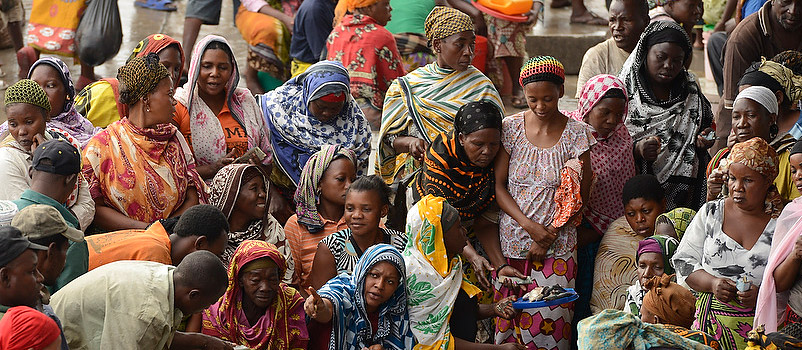BG Group plc is a British multinational oil and gas company headquartered in Reading, United Kingdom. It has operations in 25 countries across Africa, Asia, Australasia, Europe, North America and South America and produces around 680,000 barrels of oil equivalent per day. It has a major Liquefied Natural Gas (LNG) business and is the largest supplier of LNG to the United States. As at 31 December 2009 it had total proven commercial reserves of 2.6 billion barrels (410,000,000 m3) of oil equivalent.
BG Group is listed on the London Stock Exchange and is a constituent of the FTSE 100 Index. As of 6 July 2012 it had a market capitalisation of £44.9 billion, the seventh-largest of any company listed on the London Stock Exchange.
Charitable Giving BG Group Serves Under 501C3
Our strategy is to focus on long-term, strategic investment in the countries where we operate, in contrast to more traditional or philanthropic approaches to corporate giving. We believe this helps us to deliver sustained value, rather than a short-term benefit.
However, we recognise that our employees are often strongly motivated to make contributions and that there is room for ad hoc local action and involvement alongside a more formal strategy. Supporting employees in making a contribution is important, for them as individuals and for the Group’s informal relationships with its local community. The human resources staff from our businesses around the world participate in a day each year dedicated to supporting local charitable projects, schools and orphanages.
Our head office in the UK also supports a number of good causes through the Community Involvement Team (CIT), which has been running for over ten years. Every other year, the CIT selects three local charities for two years with a £20,000 donation per year. It also runs a scheme for employees to give Christmas presents to disadvantaged children, promotes volunteering opportunities, and helps the homeless over the Christmas period.
Our head office in the UK supports a number of charitable causes through charitable giving, and HR representatives from our businesses around the world participate in a day each year dedicated to supporting local charitable projects, schools and orphanages.
Social investment
Investing in the communities and societies where we operate is one aspect of social performance. Our approach to social investment (SI) spending is to support projects that build skills, employability and income-earning prospects where we work, so that we can deliver enduring benefits.
We do this through active partnerships with expert organisations and by working with communities. The smallest proportion of our social investment portfolio is dedicated to charitable or philanthropic initiatives. Our SI strategy focuses on long-term investments, particularly, multi-year projects and partnerships. We concentrate investment in three areas of strategic importance for us and the countries where we work: science, technology, engineering and mathematics (STEM) education; skills development; and improving people’s livelihoods.
Indigenous people
Our approach to indigenous people, as set out in our Social Performance Standard, recognises and respects the rights of indigenous people affected by our presence. It recognises their histories and aspirations including, where appropriate, publicly acknowledging any displacement. It demonstrates regard for the indigenous people’s distinct cultural, economic and political systems and commits to conducting all negotiations in good faith, while developing benefits sharing agreements where appropriate that cover the life of a project.
The main areas where we work alongside indigenous communities are Bolivia and Australia and also at our early development activities in Canada. We have a specific engagement strategy in place at all three operations.
We run a range of community programmes with indigenous people across our operations. For example, in Queensland we have land use agreements with traditional owners over our area of operations that commit us to developing and implementing an indigenous employment and training strategy and programme with the traditional owners and also the broader Aboriginal community.
Our indigenous employment and training strategy outlines a clear process to support the design, development and implementation of initiatives supporting indigenous employment, skills development and an indigenous business capability building programme. We have adopted a regionalised approach that provides alignment between our operations and training and employment initiatives and federal and state government policy to bridge the gap in Aboriginal disadvantage.
As part of BG Group’s contribution to the knowledge base on indigenous people, we jointly prepared a resource document on agreement -making with indigenous groups, with the University of Queensland’s Centre for Social Responsibility in Mining. This provides source material and an analysis of trends regarding the challenges of negotiating and implementing agreements with Indigenous groups, with particular attention to agreement -making in the context of oil and gas projects.
Human rights
We respect human rights as set out in the Universal Declaration of Human Rights and aim to provide assurance to internal and external stakeholders that we are meeting our commitments to human rights.
We participate in selected human rights initiatives so that we can contribute to the evolution of this important area. Our approach to managing human rights responds to our human rights exposure and risk profile in the countries where we operate.
Our policy framework
Our Human Rights Policy takes into account external expectations regarding the behaviour and management systems of companies. It is informed in particular by the UN Guiding Principles on Business and Human Rights.
This policy commits us to:
- Ensure that our standards meet the requirements of our Human Rights Policy, with specific focus on human resources, ethical conduct, contracts and procurement, security, environment and social performance
- Assess risk appropriately and ensure that public and private security providers working for and on behalf of BG Group respect human rights and our commitments to the Voluntary Principles on Security and Human Rights
- Assess human rights risk in our supply chain and work with contractors and suppliers to manage these risks
- Work with industry peers to improve human rights practices and learn from each others’ experiences
- Publicly report on our human rights objectives and performance.
Managing human rights risk
We have a risk-based approach to human rights, assessing the risk in the countries where we work rather than adopting a standard approach. This allows us to put in place measures that are proportionate to the risk.
Guidance on how to assess and manage human rights risk is embedded in a range of our Group standards: Human Resources, Contracts and Procurement, Security, Ethical Conduct, Environment, and Social Performance.
In exceptional cases, where we believe human rights risks cannot be managed through these functions, we may conduct a stand-alone human rights impact assessment (HRIA). The table below shows how human rights issues are identified and managed by a range of functions.


